- 2 2365 4400
- Ayuda CONICYT
News
International Award Editorial delivered Scopus 2013 Chilean scientists eight
Published 21-06-2013
• The award, organized by the Editorial Elsevier, had the support of the National Scientific and Technological Research, CONICYT, and distinguished researchers from prestigious national.
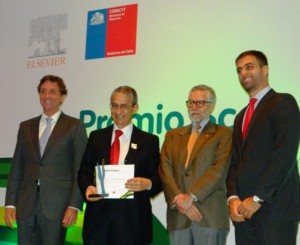
Charles Pallandt, Director of Sales and Marketing at Elsevier for Africa, Middle, Eastern Europe and Latin America; Dr. Jose Rodriguez, rector of the Technical University Federico Santa Maria; Dr. José Miguel Aguilera, President of CONICYT, and Ezekiel Farré , Regional Manager of Sales and Marketing for Latin America South Elsevier.
With the presence of President of the National Commission for Scientific and Technological, CONICYT, Dr. José Miguel Aguilera, Elsevier executives and were delivered to the awards Scopus 2013.
On the occasion, awarded to eight scientists who work in various areas of knowledge, as Physics and Astronomy; Engineering and Earth Sciences; Health Sciences; Biology and Biotechnology; Social Sciences and Computation. Also, was awarded the contribution of two young scientists.
For the President of CONICYT, José Miguel Aguilera, "The awards and recognitions from international organizations to allow Chilean researchers recognize the career and scientific excellence of the work done over many years". Turn, recalled that "access to information resources class scientific, and the publication, exchange and dissemination of research results, essential part of the training of researchers of excellence, and is a vital input in all stages of the process of creating new knowledge ".
For Regional Manager of Sales and Marketing for Latin America South Elsevier, Ezekiel Farré, these awards "represent an important tool for Chilean scientists have to be on our database Scopus and be a contribution to the development of millions of researchers and students worldwide".
Farré stressed that "for our publishing, over 133 years of experience in the world, is a privilege to perform for the second time this award in Chile ".
The category winners: Mark Phillips for Physics and Astronomy; the Rector of the Technical University Federico Santa Maria, Jose Rodriguez, Engineering and Earth Sciences; Inestrosa nibaldo rewarded for Health Sciences; Michael Seeger Pfeiffer in Biology and Biotechnology; Diego Cosmelli for their contribution in Social Sciences; Marcelo Arenas for Computing; mientra that Waldo Cerpa and Sergio Torres received reconocimientos him in the area of Young Scientists.
It Scopus Award is given to them scientists affiliated with institutions that Chilean mayor he TengAn number Trabajo published in more of them 20.500 titles of the base Scopus (it implies that a Index h high), and the Cuyo Trabajo aquellos scientists have received him mayor number of citations in the last years, in different areas of knowledge that it.
Los winners:
Biology and Biotechnology
Dr. Seeger Michael Pfeiffer. Technical University Federico Santa Maria.
It Seeger Professor Pfeiffer are biochemical and PhD from the University of Chile. Realizó su tesis doctoral en el instituto About Association for Research Biotechniologische s Brunswick, Alemania. Actual elements it profesor titular drector y del Centro de Biología y Nanotecnología del Laboratorio de Sistemas y de Microbiología Molecular Biotecnología y Ambiental de la Universidad Técnica Federico Santa María de Valparaiso Coordinador y de la Red Iberoamericana de Isla Negra Biotecnología RIABIN. Ha recibido los premios Universidad de Chile, la Medalla Hermann Niemeyer y una beca de la Max Planck Society. Sus áreas de la investigación but Biotecnología microbiana, la la GENOMICA microbiología ambiental y funcional. It autor de más de 65 publicaciones internacionales Científicas y más en 200 presentaciones en congresos Científicos, lecturer and over 20 countries and organizing a series of conferences and national and international scientific courses. Account, also, three patents for inventions.
Health Sciences
Dr. Nibaldo Inestrosa, Pontifical Catholic University of Chile
Professor Inestrosa is a neurologist and began his scientific work in the Laboratory of Neurophysiology at the Pontifical Catholic University of Chile, under the direction of Professor Joaquin Luco. In 1979 finished his doctoral thesis in Cell Biology with Frederick Leighton on the system Inidos peroxisomal fatty oxidation. He continued his postdoctoral training at the University of California, in San Francisco. At the end of 1986 demonstrated that cerebral pain is associated with the plasma membrane through a hydrophobic 20 Kd polypeptide. In 2000 proposed a hypothesis that first includes the distinctive features of AD, amyloid plaques and neurofibrillary tangles. He has received numerous awards, among which the National Science Award in Natural Sciences.
Dr. Diego Cosmelli, Pontifical Catholic University of Chile
Dr. Cosmelli is a biochemist at the University of Chile and received his Ph.D. in Cognitive Science from the Ecole Polytechnique, France, in 2004. He did his postdoc in the Department of Philosophy at the University of York in Toronto, Canada. Later, A second postdoctoral stay at the Laboratory for Cognitive Neuroscience, Department of Psychiatry, School of Medicine, of the Pontifical Catholic University of Chile. In 2008 as academic joined the School of Psychology at the same university, where he directs the Laboratory of Psychophysiology, well as deputy exercising Research and Graduate. His research interests focus on the empirical and theoretical attention dela, perception and the flow of conscious experience in humans.
Computing
Dr. Marcelo Arenas, Pontifical Catholic University of Chile
Dr. Arenas has a degree in Mathematics, Master of Science in Engineering and Civil Industrial Engineer with a major in Computer Science at the Pontifical Catholic University of Chile. He received his Ph.D. in Computer Science from the University of Toronto, Canada. Today is an associate professor in the Department of Computer Science of the Catholic University of Chile. His research focuses on theoretical and practical aspects of information management. He has published about 100 articles in international journals and conferences, besides book "Relational and XML Data Exchange". Professor Sands has received several international awards for his work in research, among which IBM Ph.D. Fellowship and seven awards for best research paper and various conferences.
Physics and Astronomy
Dr. Mark Phillips, Las Campanas Observatory
Dr. Phillips has developed its expertise in the field of astronomy at the Cerro Tololo observatory. His research interests are spectroscopy and photometry of supernovae; supernovae and the extragalactic distance scale. He has received several awards including the award AURA, Glubler Prize in Cosmology and, also, part of the team that won the Nobel Prize in Physics 2011 for his work on the investigation into the expansion of the Universe through supernovae.
Engineering and Earth Sciences
Dr. Jose Rodriguez, Technical University Federico Santa Maria
Electrical Engineer from the Technical University Federico Santa Maria, obtained the Master's Degree at the same university and, later, reached the degree of Doktor Ingenieur, specialty electrical, at the University of Erlangen, Nuremberg, Alemania. He is currently the rector of the Technical University Federico Santa Maria. He has received four awards for the best article of the year in magazines (2207, 2008, 2009 and 2011) and two awards for the best doctoral thesis awarded by the Chilean Academy of Sciences (2011 and 2013).
Young Scientist Award
Dr. Sergio Torres, University of La Serena
Dr. Torres has a degree in Physics with a minor in Astronomy from the University of La Serena, graduated with the best grades of his generation. He completed his doctoral studies at the University of Sao Paulo, Brazil, and the University of Provence, France, obtaining the degree of Doctor of Science with a major in Astronomy in both Houses of Studies. His doctoral work, based on the kinematics of galaxies in compact groups, was recognized as the best thesis of the Department of Astronomy at the University of Sao Paulo and obtained the words "Three honorable" by the French. Between October 2010 and October 2012 held a postdoc supported by Fondecyt at the University of La Serena, working on the kinematic analysis of the giant star-forming region of 30 Doradus. Currently implementing a project Fondecyt Research Initiating, focused on the study of galaxies gradients interaction metallicity.
Young Scientist Award
Dr. Waldo Cerpa, Pontifical Catholic University of Chile
Dr. Cerpa studied Biochemistry at the Pontifical Catholic University of Chile, performing their undergraduate thesis in the laboratory of Dr. Nibaldo Inestrosa, where he became familiar with various techniques to study the nervous system, addressing concerns regarding toxicity of the Alzheimer beta-amyloid peptide, and participation of copper in neurotoxic processes. He received his Ph.D. in Biological Sciences, Cellular and Molecular Biology mention. The different areas of study addressed by Dr. Cerpa have generated a series of publications, allowing them to participate in national and international.
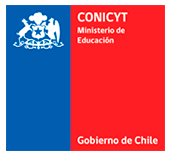
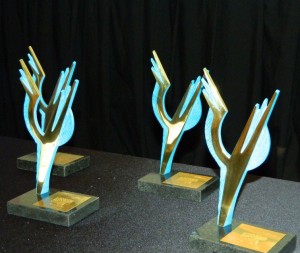
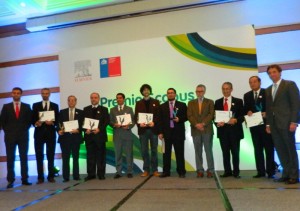
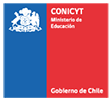

Leave a Reply